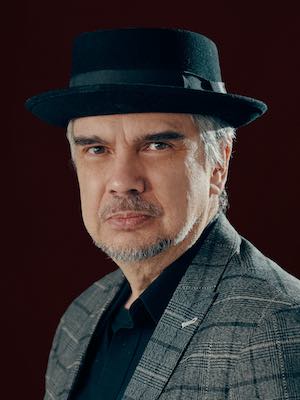
Prophets and poets have created an ethereal, imaginary place of pearly gates, gold-paved streets and harp-playing angels as a final resting place for our heavy burden souls.
Missing from their conjured imaginary of heaven is that this serene and tranquil place where trials and tribulations are supposedly vanquished, where every tear is wiped from our eyes, is a place which the disciple of Patmos described as the location where war breaks through (Rev. 12:7).
Heaven – a place of violence? All this to say that whatever we may think heaven is, we are probably wrong. So, then, what is heaven?
Jesus often told his disciples that the reign of God was among you and within you. “They shall neither say, ‘Here it is,’ nor “There it is,” for behold, the reign of God is within you [among you]” (Lk 17:21).
So, whatever this heaven is, it is neither here nor there, nor is it restricted to the hereafter. Heaven already exists – among us and within us.
Heaven is, thus, less a place than it is a state of being. The reign of God, which is among and within us, is whatever we decide it to be.
We get to construct, to create the heaven in which we will live in the here-and-now by the praxis – the actions – in which we engage. And if an eternity exists, this will be the same “place” where our souls will find final rest.
We possess the power to create a heaven based on the principles of the gospel or on the principles of hyper-individualism, a heaven of agape or a heaven of torment.
So, how exactly do we create this heaven?
We would be wrong if we think that we can consciously construct heaven; it already exists as a reflection of our theology. The heaven we created for the now and for the later already exists among and within us based on whoever or whatever becomes the God whom we call Lord.
This God could be an anthropomorphic figure found in scriptures (in other words the Bible, the Koran), or it could be the things which maintain and sustain our unearned power, privilege and/or profits.
The concern is not “if there is a God,” but instead, “what is the character of this God in which we claim to believe?”
When I consider the character of the God in which many Eurochristians have placed their faith – based on the treasures they store, the votes they cast, the words which proceed from their mouths – I get a glimpse of the reign of God which already exists among and within them.
Theirs is a sexist God, a God who advocates for patriarchy and control over women’s bodies. Theirs is a white supremacist God, a God who chose the white race to be “his” new chosen people tasked to be the light upon the hill. Theirs is a hateful God, a God who simply abhors “the gays,” “the illegals” and those from whom they segregate.
Theirs is a plutocratic God who only helps those who help themselves, who fuses and confuses personal riches earned off the sweat of the poor as blessings from heaven. Theirs is a personal savior, a God who celebrates individualism, dismissing any communal or collective initiative for justice as socialism or communism.
The heaven which currently exists among and within those who have made white Christianity the foundation of their faith is a heaven of which I want no part, for this is a heaven of hate, exclusion and self-centeredness. This is a heaven where even war breaks through. Their God is not my God, their heaven has no room for the likes of me.
This leaves me to wonder, what is the heaven that I want to exist within me? Whatever this heaven is, I want it to be the one that exists among the least of these, the wretched of the earth.
What then, I ask, is the heaven of the disenfranchised, the dispossessed, the disinherited? Cautious of the fallacy of romanticizing the oppressed; nevertheless, I look to the underside of white Christianity for clues which help me center what is the heaven in which I want to live in now and, if a by-and-by exists, for all eternity.
Although this heaven is still a work in progress, it reflects a God of unconditional welcoming and accepting love, a God of justice who stands in solidarity with the poor and oppressed, a God who tears down those on high and lifts up those kept low, a God who is less concerned with correct doctrine and calls instead for the praxis, the actions which reflects God’s character and reign.
Regardless if there is or is not a God, regardless if there is a hereafter, this is the God I choose to believe in. This is why we call it faith. So, with Jesus I also pray, “Thy kingdom come.”
Professor of Social Ethics and Latinx Studies at Iliff School of Theology in Denver, Colorado, and a contributing correspondent at Good Faith Media.

